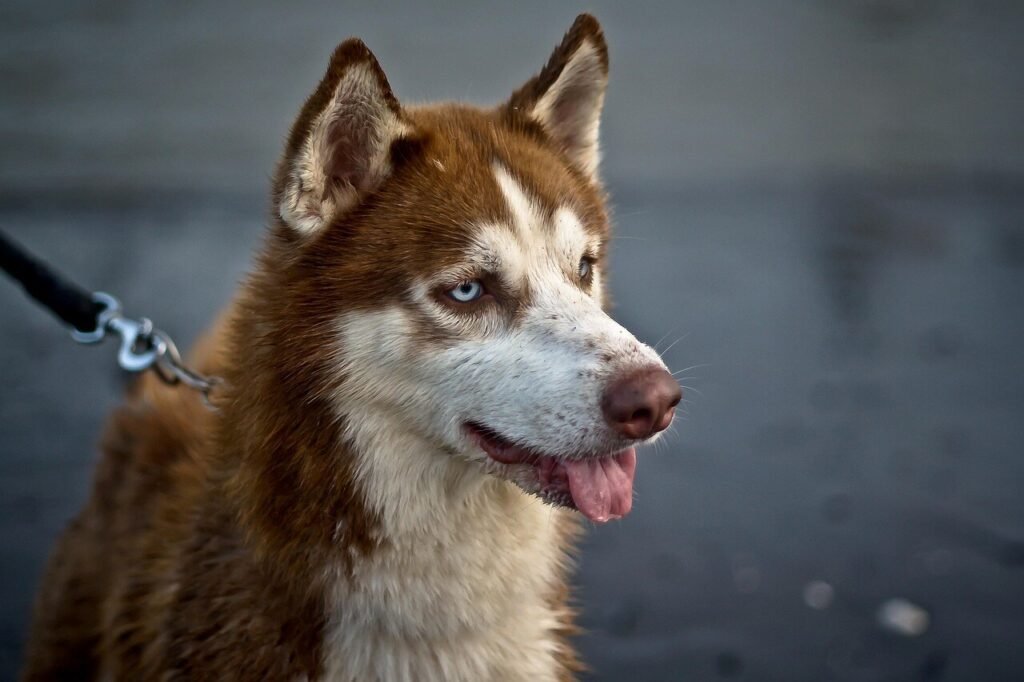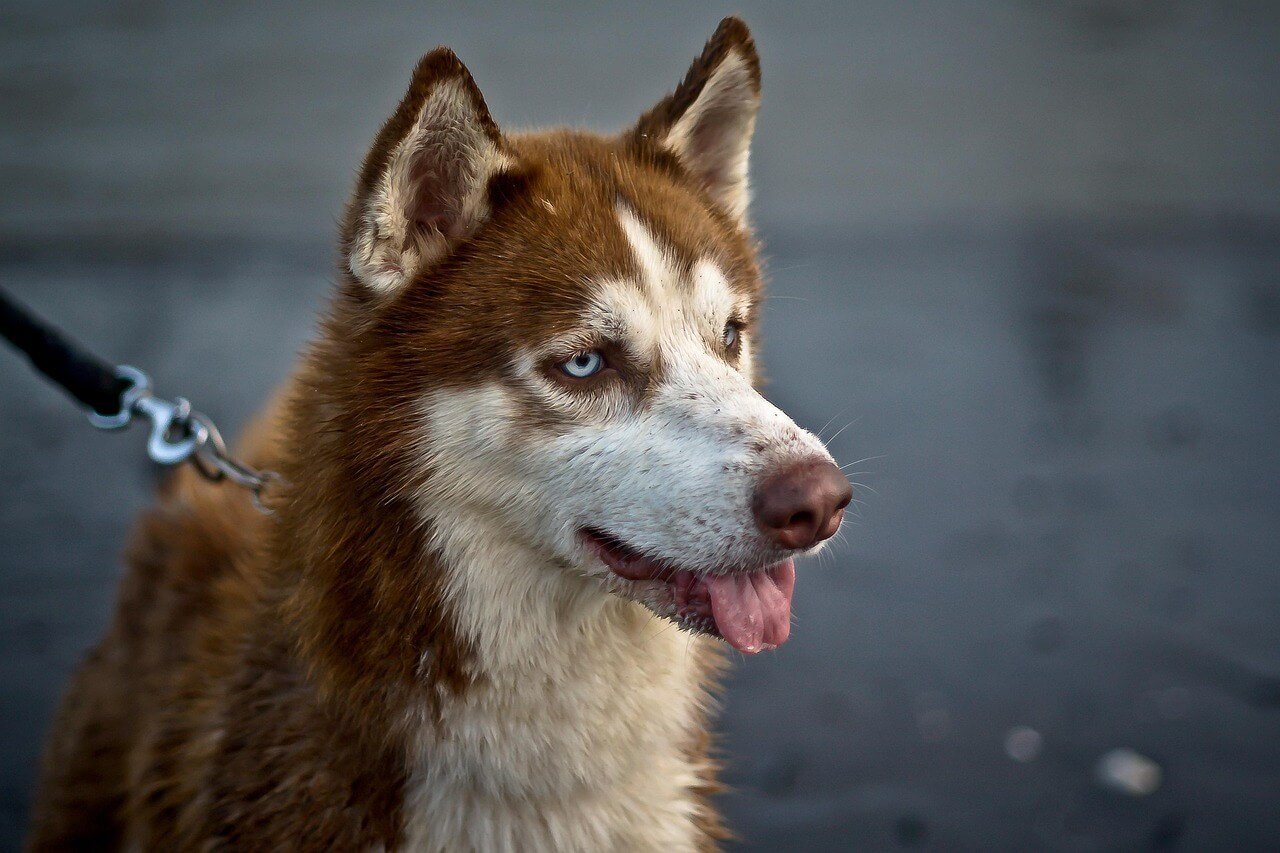Understanding Dog Snort Breathing: What It Means and Why It Happens
If you’ve ever heard your dog make a sudden snorting sound, you might have wondered what it means. Known as “dog snort breathing,” this phenomenon can range from harmless to indicative of underlying health issues. While occasional snorts are normal, frequent or persistent episodes may warrant closer attention. In this blog post, we’ll explore the causes of dog snort breathing, how to differentiate between normal and concerning behaviors, and practical tips to ensure your furry friend stays healthy and happy.
Common Causes of Dog Snort Breathing
Dog snort breathing can occur for a variety of reasons, and understanding these triggers is the first step in addressing the issue. Here are some common causes:
Nasal irritation from dust, pollen, or other environmental allergens can lead to temporary snorting.
Foreign objects lodged in the nasal passages or throat may cause sudden snorting as the dog tries to expel them.
Brachycephalic breeds, such as Bulldogs or Pugs, are prone to snorting due to their shortened airways.
Excitement or overexertion during play can trigger rapid breathing and snorting sounds.
Respiratory infections, such as kennel cough, may result in snorting as a symptom of inflammation.
While occasional snorting is usually harmless, persistent or severe episodes should be evaluated by a veterinarian to rule out serious conditions.
Signs That Dog Snort Breathing May Be a Concern
Not all instances of dog snort breathing are cause for alarm, but certain signs indicate that it might be linked to a health issue. Here’s what to watch for:
Frequent snorting accompanied by wheezing or labored breathing could signal respiratory distress.
Coughing or gagging alongside snorting may point to an infection or blockage in the airway.
Visible discomfort, such as pawing at the face or rubbing the nose, suggests potential irritation or injury.
Lethargy or loss of appetite combined with snorting could indicate a more systemic problem.
Blue gums or tongue during snorting episodes may signify oxygen deprivation and requires immediate attention.
If you notice any of these symptoms, consulting a veterinarian promptly can help identify and address the root cause.
Check this guide 👉Why Is My Dog Breathing Fast in His Sleep? Best 7 Tips!
Check this guide 👉Why Is My Dog Shaking When Breathing? Best 7 Expert Tips!

When Dog Snort Breathing Is Normal | When to Seek Veterinary Help |
|---|---|
Occasional snorts during play | Persistent snorting for no reason |
Snorting after sneezing or yawning | Wheezing or gasping for air |
Mild snorting in brachycephalic breeds | Signs of pain or distress |
Temporary snorting due to allergies | Coughing or gagging |
Snorting triggered by excitement | Bluish gums or difficulty breathing |
Tips to Manage and Prevent Dog Snort Breathing
While not all cases of dog snort breathing can be prevented, there are steps you can take to reduce its frequency and severity. Consider these tips:
Keep your home free of irritants like smoke, strong perfumes, or excessive dust to minimize nasal irritation.
Regularly clean your dog’s living area to reduce allergens and maintain good air quality.
Avoid overexertion during exercise, especially for brachycephalic breeds prone to breathing difficulties.
Monitor your dog’s weight, as obesity can exacerbate respiratory issues and lead to snorting.
Schedule routine veterinary check-ups to catch potential health problems early.
By taking these proactive measures, you can help ensure your dog breathes comfortably and reduce the likelihood of concerning snort breathing episodes.
Breeds Prone to Snort Breathing and How to Care for Them
Certain dog breeds are more susceptible to snort breathing due to their unique anatomy. If you own one of these breeds, here’s how to provide the best care:
Brachycephalic breeds, such as Bulldogs and Pugs, often experience snorting due to their flat faces and narrow nostrils.
Boxers and Shih Tzus may also struggle with breathing issues, requiring extra attention to their respiratory health.
Regular vet visits are crucial for these breeds to monitor and manage any breathing-related complications.
Use harnesses instead of collars to avoid putting pressure on their necks and restricting airflow.
Keep exercise sessions moderate and avoid activities in extreme heat or humidity.
With proper care and attention, you can help these breeds live comfortably despite their predisposition to snort breathing.
Environmental Factors That Trigger Dog Snort Breathing
Certain environmental factors can contribute to episodes of dog snort breathing, especially in sensitive or predisposed breeds. Identifying and addressing these triggers can help reduce the frequency of snorting.
Dusty environments can irritate your dog’s nasal passages, leading to sudden snorting episodes.
Strong odors from cleaning products, perfumes, or air fresheners may cause temporary breathing difficulties.
Extreme temperatures, particularly heat and humidity, can strain your dog’s respiratory system.
Pollen and seasonal allergens can exacerbate snorting, especially in dogs with allergies.
Poor ventilation indoors can trap irritants, making it harder for your dog to breathe comfortably.
By minimizing exposure to these environmental triggers, you can create a safer and more comfortable space for your dog, reducing the likelihood of snort breathing.
How Diet and Hydration Impact Breathing
Your dog’s diet and hydration levels can play a surprising role in their respiratory health, including episodes of snort breathing. Ensuring proper nutrition and hydration is essential for overall well-being.
A balanced diet rich in omega-3 fatty acids can reduce inflammation in the airways.
Dehydration can thicken mucus, making it harder for your dog to breathe clearly.
Overfeeding or obesity can put pressure on the diaphragm, worsening breathing issues.
Food allergies or intolerances may lead to nasal congestion and snorting.
Providing fresh, clean water at all times supports respiratory and overall health.
By prioritizing a healthy diet and adequate hydration, you can support your dog’s respiratory system and potentially reduce snort breathing episodes.
When to Use Humidifiers and Air Purifiers
Humidifiers and air purifiers can be valuable tools in managing dog snort breathing, especially for dogs with sensitivities or pre-existing conditions. These devices can improve air quality and ease breathing.
Humidifiers add moisture to the air, preventing dry nasal passages that can trigger snorting.
Air purifiers remove allergens like dust, pollen, and pet dander from your home environment.
Using a humidifier during winter months can combat dry indoor air caused by heating systems.
Placing an air purifier in areas where your dog spends the most time can reduce irritants.
Regularly cleaning and maintaining these devices ensures they function effectively.
Incorporating humidifiers and air purifiers into your home can create a healthier environment for your dog, potentially reducing snort breathing episodes.
Frequently Asked Questions About Dog Snort Breathing
Is dog snort breathing always a sign of a health issue?
No, occasional snorting is usually harmless, but frequent or severe episodes may indicate an underlying problem.
Can allergies cause my dog to snort?
Yes, allergies can irritate the nasal passages and lead to temporary snorting.
Are brachycephalic breeds more prone to snort breathing?
Yes, their shortened airways make them more likely to experience snorting and other breathing difficulties.
What should I do if my dog is snorting and seems distressed?
Contact your veterinarian immediately, especially if there are signs of respiratory distress.
Can weight management help reduce snort breathing?
Absolutely, maintaining a healthy weight can alleviate pressure on the respiratory system and improve breathing.
Final Thoughts on Dog Snort Breathing
Dog snort breathing is a common occurrence that can range from completely normal to a sign of something more serious. By understanding the causes, recognizing warning signs, and taking preventive measures, you can ensure your dog stays healthy and comfortable. Remember, when in doubt, consult your veterinarian for personalized advice. With the right care and attention, you can minimize snort breathing episodes and enjoy many happy moments with your beloved pet.
Canned Pumpkin for Cat Diarrhea: Best 7 Expert Tips! Natural remedy to firm stools, soothe upset bellies, and support gut health safely.
Can a Cat Give You Scabies? Best 7 Expert Tips! Discover the truth about feline mites, human skin risks, and how to protect yourself—without panic.
Cat Flea vs Human Flea: Best 7 Expert Tips! Discover the truth about bites, species, and how to eliminate infestations for good.
Weird Cat Behaviors: Best 7 Expert Tips! Discover why cats do strange things—and how to understand, not punish, their instincts for a happier home.





